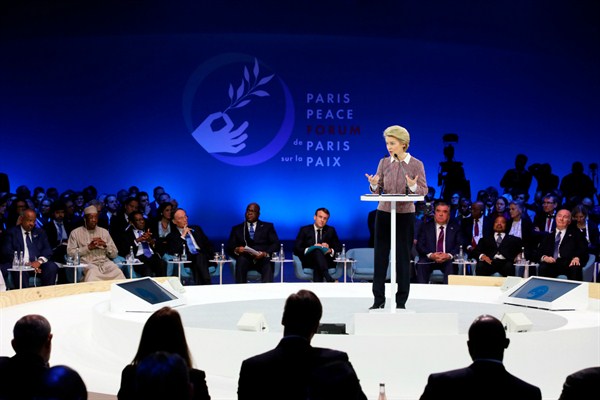Last week, I attended the second Paris Peace Forum, of which I am a member of the Steering Committee and the Selection Committee. The brainchild of French President Emmanuel Macron, the forum was less glitzy this year than the inaugural version in 2018, which coincided with the centennial of Armistice Day and attracted more than 60 heads of state and government. But what this edition lacked in flash, it compensated for in substance.
Beyond showcasing dozens of proposals for improving global governance, its opening sessions featured thoughtful speeches on the parlous state of world order from United Nations Secretary-General Antonio Guterres, the incoming president of the European Commission, Ursula von der Leyen, and Macron himself. The trio of leaders warned that the world is fracturing, imperiling international cooperation and leaving the planet adrift in the face of daunting security, political, economic and ecological challenges. All three underscored Europe’s critical role in holding the line against these centrifugal forces.
Guterres described a world riven by five fissures. The first is a “fault line” between the United States and China, whose economic, technological and geopolitical rivalry threatens to split the planet into “two separate and competing worlds”—each with its own trade and financial systems, internet and artificial intelligence platforms, and military alliances and strategies. “We must do everything possible to avert this great fracture,” he declared. To prevent the world’s division into two blocs, “a strong and united Europe” must defend “a multilateral order based on the rule of law.”

